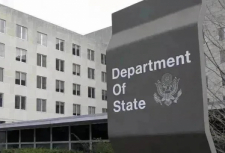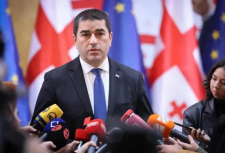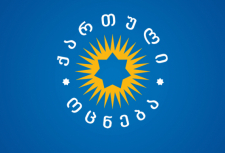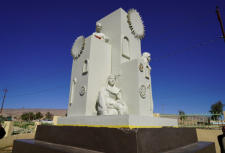There is practically no Yazidi population left in Mosul
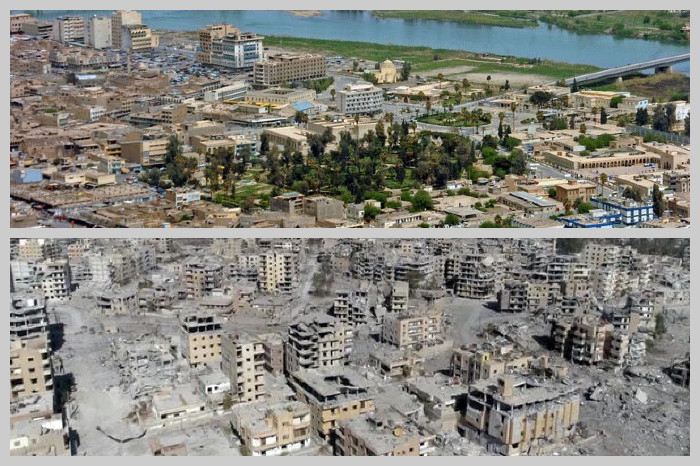
After the fall of the Ba'ath Party regime, there have been big changes in the city of Mosul. At the beginning of 2004, the first sleeping cells of Al-Qaeda began to awaken and appear, religious extremism spread widely. Direct targeting of minorities, especially Yazidis and Christians, which led to the evacuation of minorities from the city, the outflow of Yazidis and Christians from Mosul began.
In the nine years leading up to the arrival of ISIS in 2014, Al-Qaeda targeted minorities, carrying out several operations — bombings — assassinations of famous personalities, especially representatives of the Yazidi minority and Christians — the attack on Shabaks and Shia Turkmen, which led to the flight of minorities either to Kurdistan or to areas of the Nineveh Plain that were under the control of Kurdish forces, and dozens of minorities became victims of terrorist operations, one of them was the murder of 24 Yazidi workers who worked in one of the city's factories, as well as many other violations and abuses affecting Christian homes and shops in the city.
By 2014, the beginnings of the ISIS organization appeared in the media, and it was more barbaric than Al-Qaeda, ISIS fought not only with minorities inside the city, but also targeted them in their homes and in their areas of residence, occupying cities and all suburbs, committing the most heinous crimes in the areas of the Yazidi minority, such as murder, kidnapping, and capture. Demographic changes and systematic work have begun to sow the seeds of division and diaspora among the components of the province, as well as a serious split between them, which takes decades to restore trust.
After the liberation of the city in 2017 and five years later, the city has not returned to its normal state, and there are still fears that representatives of the Yazidi minority will not return to their homes.
In this context, Khidir Domli, an international professor of peace studies at the University of Dahuk, notes that "despite the eight-year control of ISIS over Mosul and many Iraqi cities and their commission of many crimes against humanity, attention to the post-ISIS phase is very difficult. Many dreamed that life would return to what it was before 2014, but everything indicates that this is difficult to achieve and it will not happen again".
ezidi24
Tags: #yazidisinfo #aboutyazidis #newsyazidis
There is practically no Yazidi population left in Mosul

After the fall of the Ba'ath Party regime, there have been big changes in the city of Mosul. At the beginning of 2004, the first sleeping cells of Al-Qaeda began to awaken and appear, religious extremism spread widely. Direct targeting of minorities, especially Yazidis and Christians, which led to the evacuation of minorities from the city, the outflow of Yazidis and Christians from Mosul began.
In the nine years leading up to the arrival of ISIS in 2014, Al-Qaeda targeted minorities, carrying out several operations — bombings — assassinations of famous personalities, especially representatives of the Yazidi minority and Christians — the attack on Shabaks and Shia Turkmen, which led to the flight of minorities either to Kurdistan or to areas of the Nineveh Plain that were under the control of Kurdish forces, and dozens of minorities became victims of terrorist operations, one of them was the murder of 24 Yazidi workers who worked in one of the city's factories, as well as many other violations and abuses affecting Christian homes and shops in the city.
By 2014, the beginnings of the ISIS organization appeared in the media, and it was more barbaric than Al-Qaeda, ISIS fought not only with minorities inside the city, but also targeted them in their homes and in their areas of residence, occupying cities and all suburbs, committing the most heinous crimes in the areas of the Yazidi minority, such as murder, kidnapping, and capture. Demographic changes and systematic work have begun to sow the seeds of division and diaspora among the components of the province, as well as a serious split between them, which takes decades to restore trust.
After the liberation of the city in 2017 and five years later, the city has not returned to its normal state, and there are still fears that representatives of the Yazidi minority will not return to their homes.
In this context, Khidir Domli, an international professor of peace studies at the University of Dahuk, notes that "despite the eight-year control of ISIS over Mosul and many Iraqi cities and their commission of many crimes against humanity, attention to the post-ISIS phase is very difficult. Many dreamed that life would return to what it was before 2014, but everything indicates that this is difficult to achieve and it will not happen again".
ezidi24
Tags: #yazidisinfo #aboutyazidis #newsyazidis

